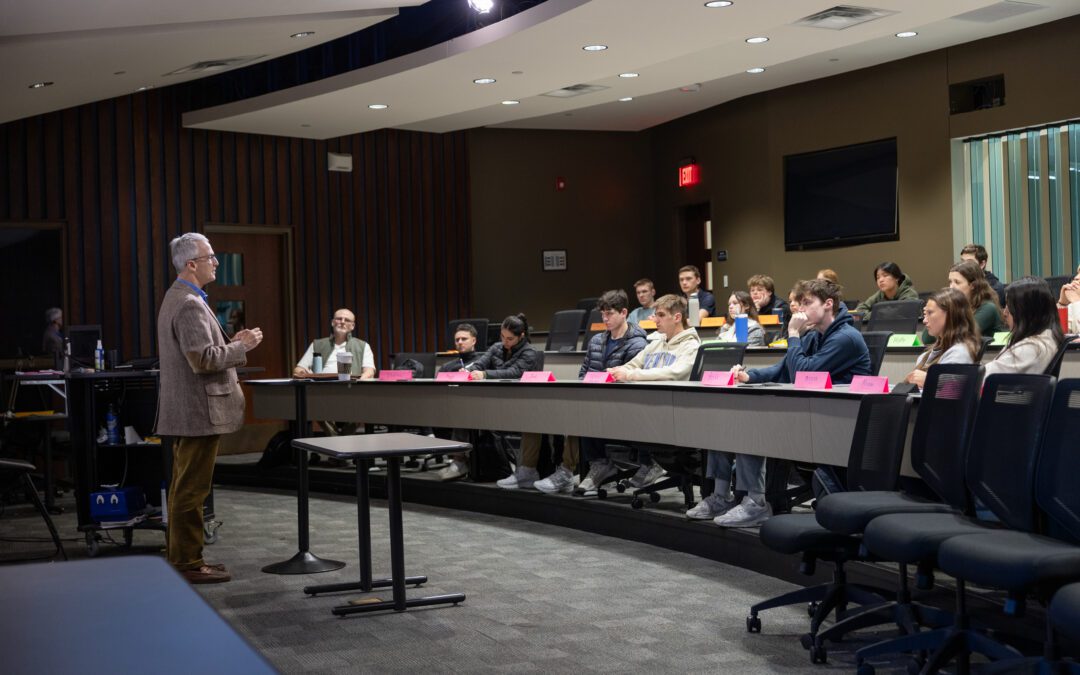“Jesus saves” might be the most basic claim of Christianity.
But how exactly does salvation work? A new book by OKWU professor, Joshua McNall, explores how the logic of redemption functions—both in Scripture and our lived experience.
The Mosaic of Atonement: An Integrated Approach to Christ’s Work was published by Zondervan Academic in August of 2019.
McNall has been teaching at Oklahoma Wesleyan University for the past ten years; he is an ordained minister in The Wesleyan Church, a regular blogger and camp speaker; and he completed his PhD at the University of Manchester, ranked one of the leading academic institutions in the UK.
“The goal of the book,” he states, “is to give people a clearer picture of salvation, and to move past two troublesome extremes in treatments of Christ’s work.”
On one hand, Christians have sometimes pitted different models of atonement against each other in a kind of competition (substitution vs. triumph; moral influence vs. recapitulation). While an opposite imbalance has been merely to affirm many different pictures of redemption without showing how they support one another in an ordered fashion.

McNall suggests an alternative through the metaphor of a Christ-shaped mosaic. In a mosaic, one can see how individual pieces of glass or tile come together, but the goal is not to fixate on a single piece. Instead, the goal is to see the different pieces come together in the service of a broader and more beautiful whole. So too with the different “pieces” of atonement doctrine. While no one model of redemption is set above or against the others, the book notes particular ways in which the “pieces” of Christ’s work fit together.
The reason for this integration is not merely academic. According to McNall, many pastors, church-goers, and spiritual seekers face real questions about the cross and how it means “good news” to them.
“My own young daughter,” McNall notes, “asked me recently how it is that Jesus saves us by his death. It’s a good question.” How does the life, death, resurrection, and ascension of a first-century Jew bring salvation to us today in the power of the Holy Spirit? “It’s important for me to address the quandaries Christians face about the cross, because our worship depends on seeing Jesus rightly.
In the words of New Testament scholar, Matthew Bates, McNall’s book is “Faithful to Scripture yet attuned to the most difficult questions about the atonement raised by science, and violence. [His] integrative treatment is the elixir the church needs.”
And in the judgment of well-known Bible scholar, Michael F. Bird, it represents the “ideal primer for anyone wanting to get a grip on the dense debates about the nature of the atonement.”
“We must see both the beauty and the logic of redemption,” McNall contends, “if we are going to point people toward a gospel that is better news than they could ever have imagined.”


